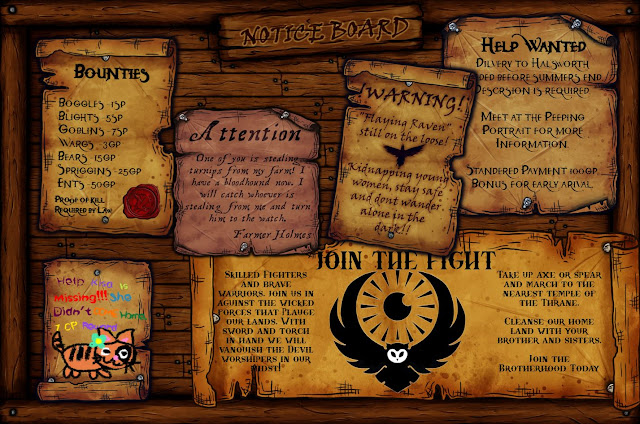Recently, a Knight at the Opera discussed how media stand in the shadow of each other; for instance, how early film served as a simple recording of play-like performances despite the possibilities being so different. I don’t know that there’s any RPG form living more thoroughly in the shadow of its parent than PBP versions of tabletop gaming, with more tragic results: it’s a direct transplant of the GM-player conversation loop that is so often strangled rather quickly when the medium simply doesn’t support it. Traditional RPGs, with their task resolution and strict GM/player division of labor, tend to fare worse than storygames, with their conflict resolution, weak or no role specialization, and oftentimes just explicitly passed around narrative control. OSR-style play falls squarely on the former side of this divide.
But OSR-style play has long emphasized a few ideas, like GM neutrality its enforcement through randomized tables, that mesh well with another style, one that’s been finding its legs recently: solo gaming. OSR procedures and solo oracles fit so well together because they’re a solution to the same goals: providing surprising challenges and the illusion of an independent world.
But solo gaming is also solving another problem: doing without the conversational loop. (Indeed for solo play the former problems arise from the latter.) Perhaps they’ve progressed faster than PBP on this front because while each exchange from player to GM and back in PBP is achingly expensive, in solo it’s impossible.
The thing, though, is that nothing about oracle use and other solo tools makes having a GM impossible - it only makes impossible the GM who wants to tell a particular story. And a GM can do things an oracle can’t - like playing with secret but consistent information, and so on.
Here’s the general proposal, then: for a PBP game to describable either as 1) an OSR game where players know all or most all of the objective GM procedures and can execute the role of neutral referees themselves, 2) several solo games which take place in the same continuity.
This style can also play nice with:
- Pendragon-style personality mechanics for narrating other PCs
- Using multiple systems (say Gary likes combat puzzles and I don’t, so he uses Pathfinder 2e to govern events in his posts and I use B/X or whatever) - since all or most all mechanical loops can be closed within any post, only diegetic continuity matters
- Since I keep looking for ways to slot it into everything, using 1:1 time as a regulator of “how much” narration any post should be doing
- GMs uploading tables to Perchance, dungeons to twine…






0 Yorumlar